Table of Contents
Picture this: a tranquil oasis where mindfulness reigns supreme, allowing you to escape the hustle and bustle of everyday life. That’s right, we’re diving headfirst into the captivating world of Zen retreat in Japan!
Now, you might be wondering, what exactly are Zen retreats and why are they so special in Japan? Rooted in the ancient philosophy of Zen, these retreats offer a sanctuary where you can detach from the chaos of the outside world and dive deep into the realm of self-reflection and contemplation.
And let me tell you, the significance of Zen retreats in Japan runs deep. With a rich cultural heritage and a strong connection to nature, Japan provides the perfect backdrop for these transformative experiences. Zen is more than just a fancy word; it’s a profound philosophy from ancient China that flourished in Japan. At its core, Zen encourages us to embrace the present moment.

What do you do at a Zen Retreat?
Meditation sessions are a fundamental component of Zen retreats, allowing participants to cultivate mindfulness, stillness, and self-awareness. Retreat attendees engage in seated meditation (zazen) and walking meditation (kinhin), honing their concentration and connecting with the present moment.
Another notable activity at Zen retreats is the Zen tea ceremony. Rooted in Zen philosophy, these ceremonies embody mindfulness, simplicity, and the appreciation of beauty in everyday rituals. Participants partake in the preparation and serving of matcha, a powdered green tea, following precise and deliberate movements. The tea ceremony emphasizes the cultivation of focused attention and a profound connection with the present moment.
Zen calligraphy is yet another practice that engages participants in a mindful and artistic endeavor. Through brushwork and the creation of kanji characters, individuals explore the interplay between movement, expression, and the state of mind. Zen calligraphy embraces imperfection, as the focus lies not on the final outcome but on the process itself.
One of the unique aspects of Zen retreats is the opportunity to engage with experienced Zen masters. These masters, with their deep understanding of Zen philosophy and mindfulness, provide invaluable guidance and teachings to retreat participants.
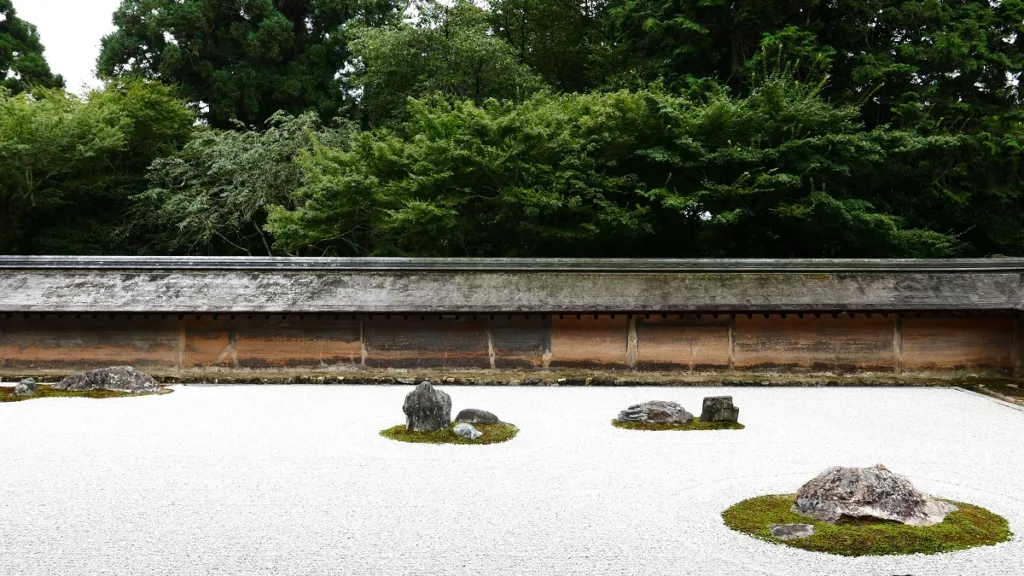
Popular Zen Retreat Destinations in Japan
Kyoto – a Renowned Hub for Zen Retreats
Kyoto holds immense historical and cultural significance as a center for Zen Buddhism in Japan. With its roots dating back centuries, the city played a pivotal role in the development and spread of Zen philosophy and practices. As the former capital of Japan for over a thousand years, Kyoto became a hub of intellectual and spiritual exploration, attracting renowned Zen masters and scholars who contributed to the growth of Zen Buddhism. The city’s temples, such as Daitoku-ji, Myoshin-ji, and Shunkoin Temple, served as centers for meditation, study, and enlightenment, fostering a deep connection between Zen and Kyoto’s cultural fabric.
The city’s serene ambiance, nestled amidst picturesque landscapes and surrounded by mountains, creates an ideal environment for introspection and self-reflection. With its abundance of temples, Zen gardens, and meditation spaces, Kyoto offers a sanctuary for individuals seeking respite from the chaos of modern life and a chance to cultivate inner peace. The city’s spiritual heritage, infused with the teachings of Zen masters, resonates throughout Kyoto’s streets, inspiring visitors to embark on a transformative journey of self-discovery and spiritual enlightenment. Whether through participating in meditation sessions, attending Zen tea ceremonies, or immersing oneself in the beauty of Zen gardens, Kyoto provides a haven for spiritual seekers to connect with their inner selves and embrace a mindful way of life.
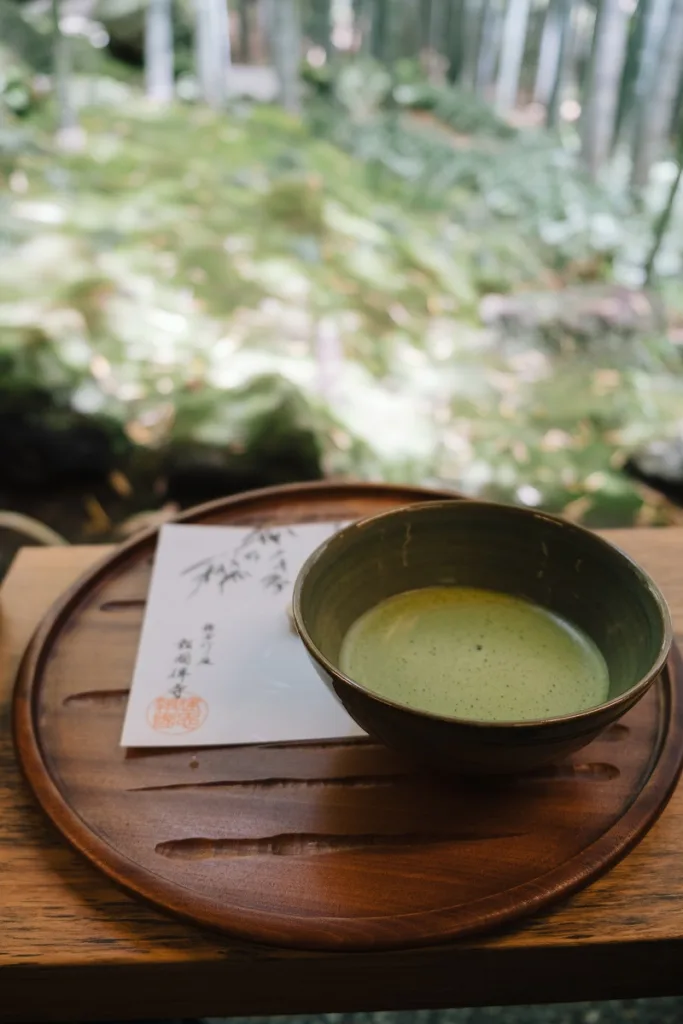
Zen Temples in Kyoto
Kyoto boasts an impressive abundance of Zen temples, making it a haven for those seeking spiritual retreats and a deeper connection with Zen Buddhism. The city is home to a vast number of temples that cater to individuals at different stages of their spiritual journey. From renowned temples like Daitoku-ji and Myoshin-ji to lesser-known gems tucked away in Kyoto’s serene neighborhoods, there is a wide range of options for retreat seekers to choose from. This abundance ensures that visitors can find a Zen temple that aligns with their preferences and offers the specific experiences they seek.
What makes Kyoto’s Zen temples even more captivating is their diverse architectural styles and settings. Each temple has its own distinct characteristics, showcasing the rich artistic and cultural heritage of Japan. From the simplicity and elegance of Zen aesthetics to the intricate craftsmanship of traditional Japanese architecture, Kyoto’s Zen temples are a visual delight. These natural settings further enhance the retreat experience, providing a tranquil atmosphere that encourages contemplation, meditation, and self-reflection.
Top 3 places for Zen Retreat in Kyoto
- Shunkoin Temple: Shunkoin Temple in Kyoto is a renowned destination for Zen retreats. It is a Rinzai Zen training monastery that offers English-language retreats and educational programs. Shunkoin Temple is highly regarded for its welcoming atmosphere and the opportunity to learn from experienced Zen practitioners.
- Daitoku-ji Temple: Daitoku-ji Temple is a large Zen temple complex in Kyoto and an excellent choice for a Zen retreat. Daitoku-ji is known for its Zen gardens, including the iconic Daisen-in Temple garden, which provides a tranquil setting for contemplation. Guests can also explore the temple’s tea houses and engage in Zen tea ceremonies, further enhancing their Zen retreat experience.
- Myoshin-ji Temple: Myoshin-ji Temple is a renowned Zen Buddhist temple complex in Kyoto and a popular destination for Zen retreats. The temple offers a variety of retreat programs, ranging from short stays to extended immersions. Guests can engage in meditation sessions, participate in Buddhist rituals, and experience the daily life of monks.
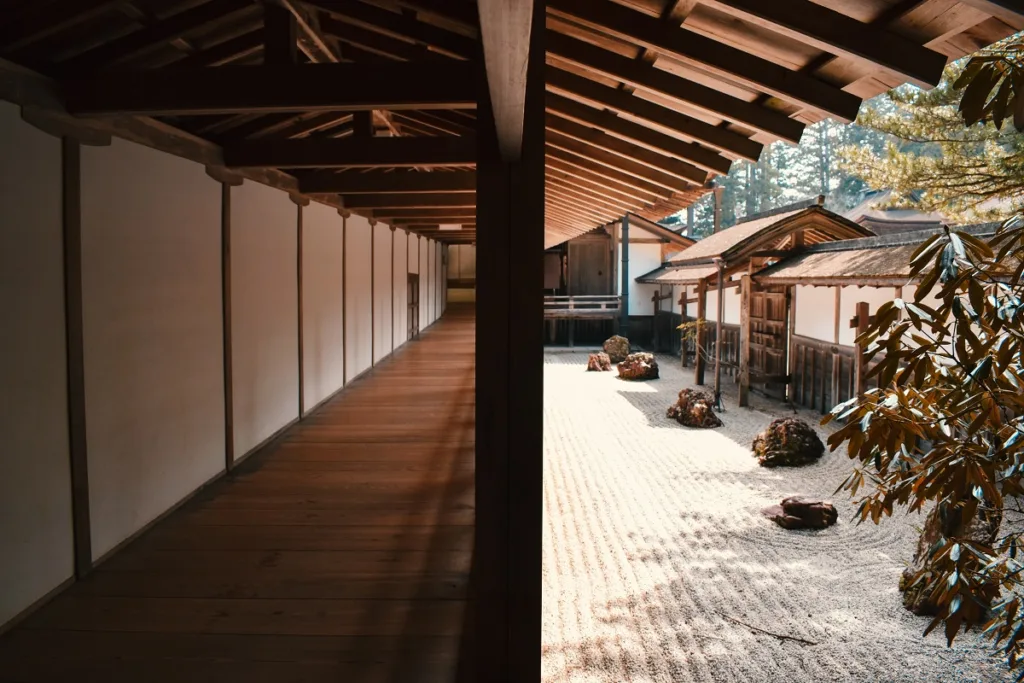
The Spiritual Oasis of Kamakura
Kamakura, located just south of Tokyo, is a captivating destination for exploring Zen retreats. Steeped in history and spirituality, this coastal city offers a serene and picturesque setting that complements the Zen experience. Kamakura is renowned for its numerous temples and Zen gardens. From the iconic Great Buddha at Kotoku-in Temple to the peaceful bamboo groves of Hokoku-ji Temple, Kamakura presents a rich tapestry of Zen retreat options.
Immersing yourself in a Zen retreat in Kamakura allows for a deep dive into Zen practices and the teachings of Buddhism. The calming atmosphere of Kamakura, with its lush greenery, temple-filled hillsides, and soothing sound of waves crashing along the coast, creates a perfect backdrop for introspection and self-reflection.
Top 3 places for Zen Retreat at Mount Koya
- Engaku-ji Temple: Engaku-ji Temple is one of the most prominent Zen temples in Kamakura and a popular destination for Zen retreats. It offers a tranquil and picturesque setting with beautiful gardens and serene meditation halls.
- Kencho-ji Temple: Kencho-ji Temple, founded in the 13th century, is not only the oldest Zen training monastery in Japan but also an ideal location for a Zen retreat in Kamakura. The temple offers serene meditation halls, Zen gardens, and scenic views of the surrounding mountains.
- Jochi-ji Temple: Jochi-ji Temple is a hidden gem nestled in the hills of Kamakura, offering a peaceful and secluded retreat experience. The temple’s serene atmosphere, surrounded by lush greenery, provides an ideal setting for meditation and self-reflection.
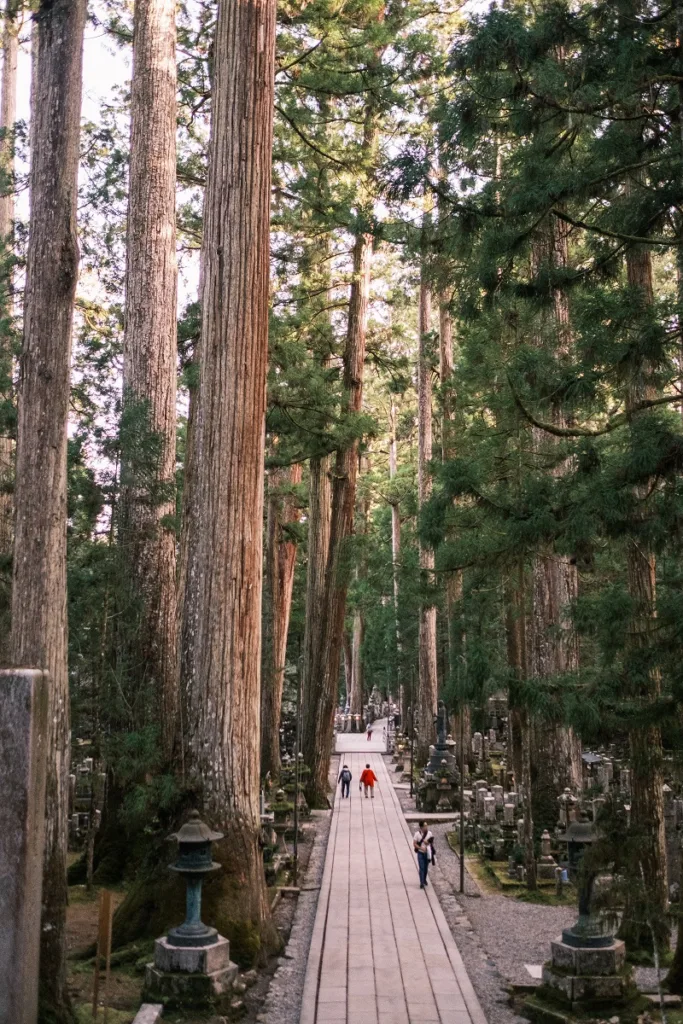
The Spiritual Legacy of Mount Koya
Mount Koya, or Koyasan, is an enchanting Zen retreat destination nestled amidst the lush forests of Wakayama Prefecture in Japan. This sacred mountain holds deep spiritual significance as the birthplace of Shingon Buddhism, an esoteric sect of Buddhism introduced to Japan in the 9th century. Mount Koya is renowned for its numerous temples, monasteries, and meditation halls.
Exploring Mount Koya allows visitors to engage in a range of Zen practices, including meditation, chanting, and sutra copying. The mountain is dotted with temples and monasteries that welcome guests for overnight stays, providing an authentic and immersive experience in the daily life of monks. During a stay in one of these temple lodgings, known as shukubo, visitors can participate in morning prayers, join meditation sessions, and enjoy vegetarian meals prepared with mindfulness and intention.
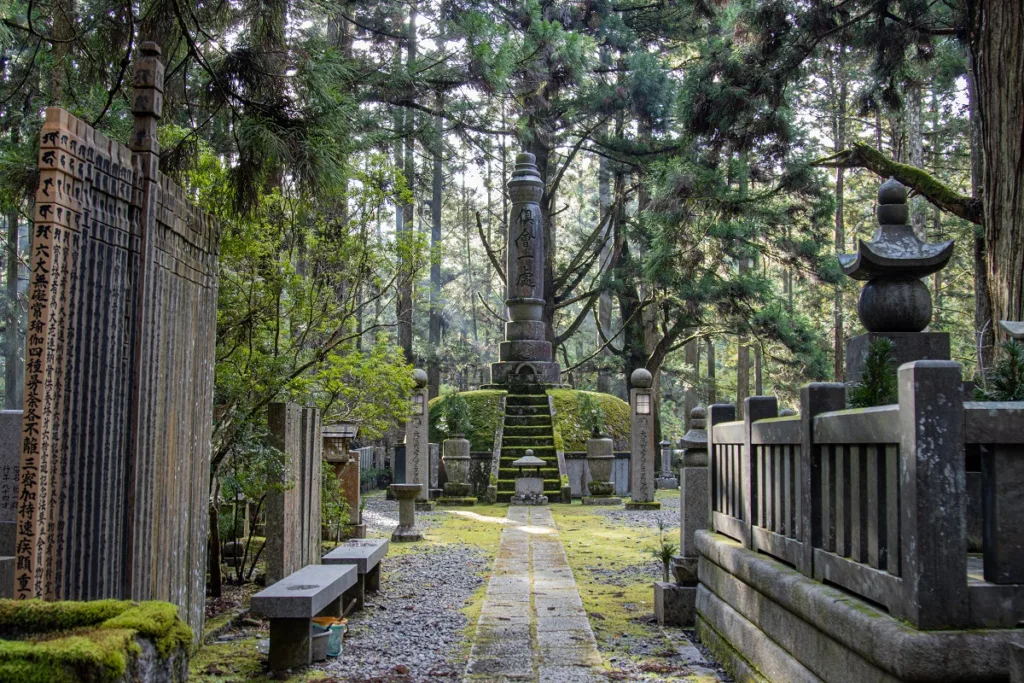
Top 3 places for Zen Retreat at Mount Koya
- Eko-in Temple: Eko-in Temple is one of the most popular Zen retreat destinations on Mount Koya. It offers a serene and immersive experience, allowing visitors to stay overnight in traditional Japanese-style rooms. The temple provides opportunities for meditation, morning prayers, and participation in Buddhist rituals.
- Shojoshin-in Temple: Shojoshin-in Temple is another highly recommended Zen retreat on Mount Koya. With its peaceful surroundings and welcoming atmosphere, it provides a serene environment for spiritual contemplation.
- Fudoin Temple: Fudoin Temple is renowned for its traditional architecture and serene atmosphere. This Zen retreat destination provides visitors with an authentic experience of temple life.
Zen Essentials





Embark on a transformative journey of self-discovery and inner peace through a Zen retreat
Engaging in Zen retreats in Kyoto offers a myriad of potential benefits that extend beyond the retreat experience itself. One of the primary advantages is stress reduction.
Moreover, Zen retreats facilitate increased self-awareness. Through the practice of meditation and introspection, individuals gain a deeper understanding of their thoughts, emotions, and patterns of behavior. This heightened self-awareness fosters self-reflection and empowers individuals to make conscious choices aligned with their values and aspirations. It also enhances interpersonal relationships, as individuals develop a greater capacity for empathy, compassion, and emotional intelligence.
The effects of Zen practices extend far beyond the retreat setting and into daily life. The long-term effects of Zen practices include improved focus, enhanced creativity, and an overall sense of well-being. Plan your trip today and go on a transformative journey toward stress reduction, increased self-awareness, and clarity of mind.
